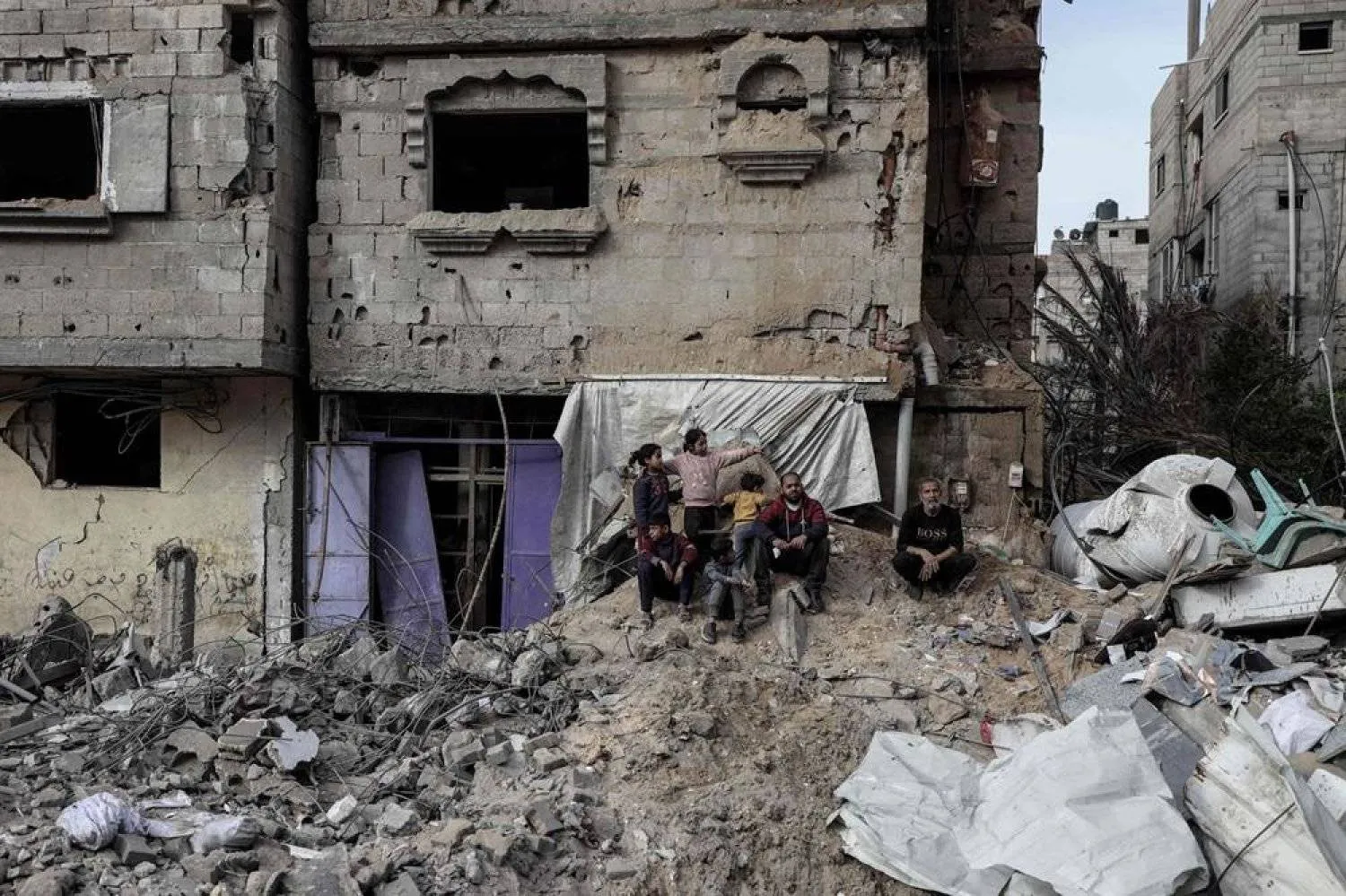Hamas said on Tuesday that an Israeli proposal on a ceasefire in their war in Gaza met none of the demands of Palestinian armed factions, but it would study the offer further and deliver its response to mediators.
The proposal was handed to the Palestinian movement by Egyptian and Qatari mediators at talks in Cairo that aim to find a way out of the devastating war in the Gaza Strip, now in its seventh month.
Residents said Israeli forces kept up airstrikes on Deir Al-Balah in central Gaza and Rafah on the enclave's southern edge on Tuesday. Israeli Prime Minister Benjamin Netanyahu has repeatedly flagged plans for a ground assault on Rafah, where over one million displaced civilians are holed up, despite international pleas for restraint.
The talks in Cairo, also attended by the director of the US Central Intelligence Agency William Burns, have so far failed reach a breakthrough towards pausing the war.
In a statement, Hamas said a new Israeli ceasefire proposal fell short of its demands.
"The movement (Hamas) is interested in reaching an agreement that puts an end to the aggression on our people. Despite that, the Israeli position remains intransigent and it didn't meet any of the demands of our people and our resistance," Hamas said.
However, it said it would review the proposal further and go back to the mediators with its response.
Hamas wants any agreement to secure an end to the Israeli military offensive, a withdrawal of Israeli forces from Gaza, and to allow displaced people to return to their homes across the small, densely populated enclave.
Israel wants to secure the release of hostages seized by Hamas in the Oct. 7 cross-border rampage that triggered the conflict and to neutralize Hamas - which has ruled Gaza since 2007 - as a military threat.
It has said it is keen to reach a prisoners-for-hostages deal by which it would free a number of Palestinians jailed in its prisons in return for the hostages in Gaza, but it was not ready to end its military campaign.
Rafah invasion
Israel says Rafah, a city on Gaza's southern border with Egypt, is the last stronghold of Hamas combat forces in the territory.
The city is also the last refuge for large numbers of civilians - almost half of Gaza's population - uprooted by relentless Israeli bombardments that have flattened their home neighborhoods further north in the territory.
They are crammed into Rafah in desperate conditions, short of food, water and shelter, and foreign governments and organizations have urged Israel not to storm the city for fear of a bloodbath.
In one of the first signs of concrete preparations for a ground assault, Israeli media reported on Tuesday that the Israeli defense ministry is purchasing 40,000 tents ahead of an evacuation of the city.
Netanyahu said Israel's aims are to release the hostages and to secure total victory over Hamas. Of the 253 people Hamas seized on Oct. 7, 133 hostages remain captive. Negotiators have spoken of around 40 going free in the first stage of a deal.
Hamas fighters killed 1,200 people in southern Israel in the lightning Oct. 7 attack, according to Israeli tallies.
Some 33,360 Palestinians have been killed in six months of conflict, Gaza's health ministry said in an update on Tuesday. Most of the enclave's 2.3 million people are homeless and many at risk of famine.
Palestinian emergency teams supported by international organizations scoured the rubble of Al Shifa Hospital in Gaza City and the shattered city of Khan Younis in southern Gaza after Israeli forces withdrew following months of fighting.
So far, the teams have recovered 409 bodies of Palestinians killed in the hospital and its surrounding neighborhood and in Khan Younis, according to Mahmoud Basal, spokesperson for the Hamas-run Gaza Civil Emergency Service. Israel said Al Shifa was used as a militant base, something Hamas denies.
Israel keeps up military pressure
On the battlefront, an Israeli airstrike on a municipality building in the Al-Maghazi camp in central Gaza killed the head of its council, Hatem Al-Ghamri, and four other civilians, the Hamas-run government media office and medics said.
The Israeli military said in a statement it had eliminated Ghamri, who it described as a military operative in Hamas' Maghazi Battalion involved in rocket launches against Israel.
An Israeli airstrike on a house in Deir Al-Balah killed one Palestinian and wounded 20 others, Hamas media said.
In Rafah, a missile fired from a drone killed one man and wounded several others, they said.









